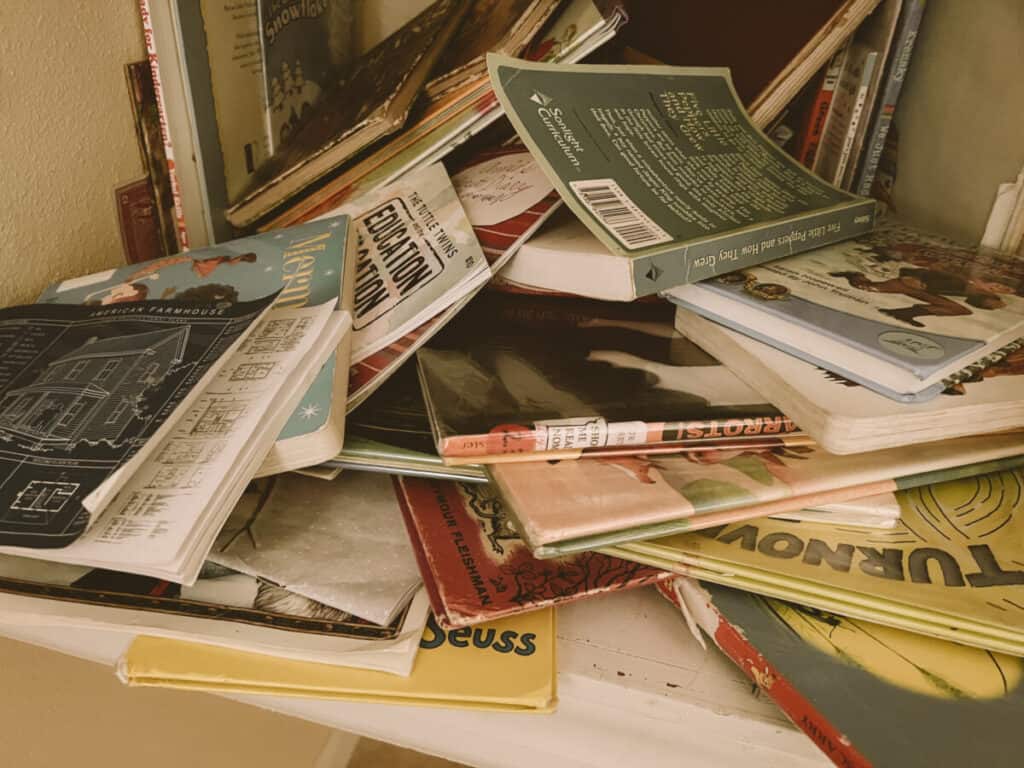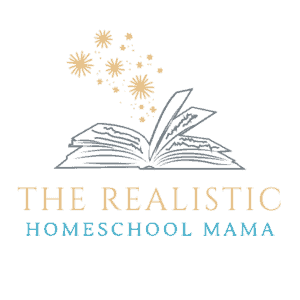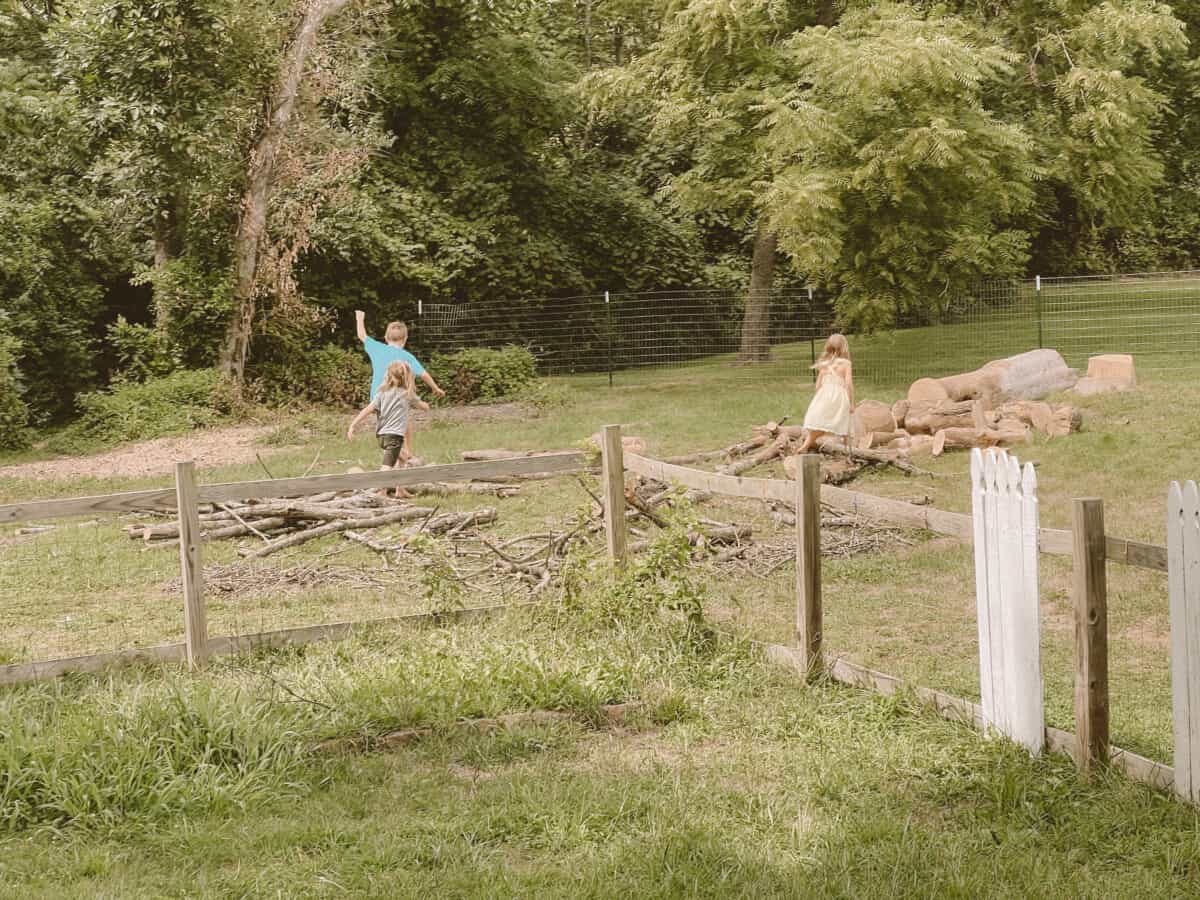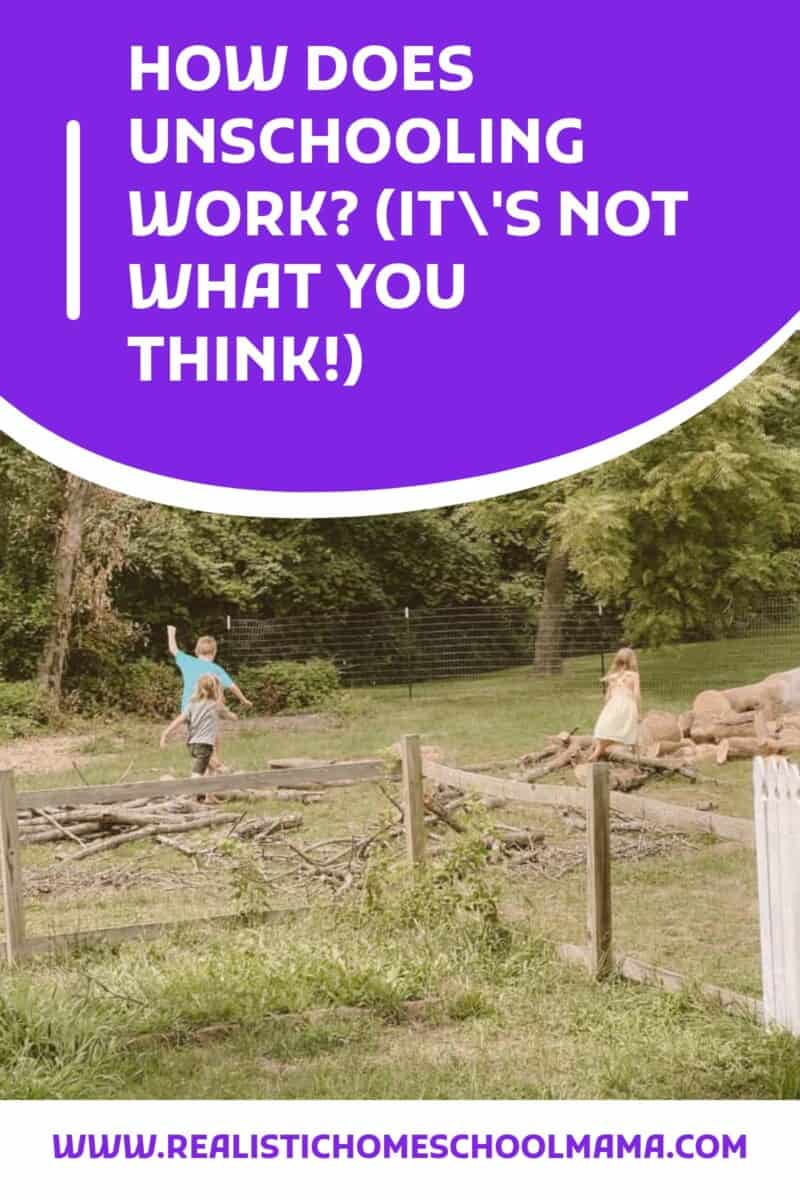Often times, when someone first learns what unschooling is, their next question will be, “ok, I get what unschooling IS, but how does it WORK, exactly?” It’s a fair question! Especially if you grew up attending school, the concept of “unschool” can at first seem a little…weird. So, how DOES unschooling work?
Unschooling works by allowing a child’s curiosity and interest to guide their learning. By trusting a child’s innate desire to learn, and allowing organic growth through play and experience, a child is able to absorb information on deeper levels than what is afforded within the confines of a classroom.
While some may jump to the conclusion that unschooling means NOT schooling (or even NOT parenting), or allowing kids to run wild or play video games for hours, this is not how unschooling works.
How is Unschooling Different than Homeschooling?
Let’s clear up some of the main differences between unschooling and homeschooling and give you a better understanding of what each is.
Unschooling is different than more traditional homeschooling in that learning is less structured and is dictated by the child’s interests.
When choosing to homeschool, parents often make choices regarding teaching styles, curriculums and how to best facilitate teach their children within the home. There is a greater level of control and involvement on the part of the parents or adults.
In contrast, unschooling is based on child-led learning or natural learning. Children are allowed and encouraged to lead the way in choosing what they want to learn and how they want to learn it.
Unschooling parents do not focus on teaching, but rather on facilitating learning.
The Charlotte Mason Homeschooling is often times compared to Unschooling. While these two methods do share some similarities, they are also very different. If you would like to learn more about the Charlotte Mason Method, check this post out
Is There a Curriculum for Unschooling?
The phrase “unschooling curriculum” is really a bit of an oxymoron!
There is no set curriculum for unschooling. Unschooling parents do not focus on teaching from a set curriculum, but rather on facilitating learning.
Often, when parents first begin looking into the unschooling lifestyle, letting go of the school model and way of thinking can be scary! Unschooling can feel like diving into uncharted territory, and they start searching for something familiar and concrete to hang onto.
I encourage you to challenge yourself to step out of your comfort zone and embrace the unknown, curriculum free!
But the reality is that unschooling is going to look different for every family. Families can vary GREATLY in the how much structured curriculum they choose to incorporate into their life.
While some unschooling families prefer to use no curriculum at all, other families may find that incorporating some curriculums for certain topics or at different stages of learning and development is extremely helpful.
Some children may actually enjoy and even request to use a curriculum, and benefit greatly from it…especially if they are making the transition from public schooling to unschooling.
The point is not to REQUIRE your child to follow a curriculum, but rather to support them in the learning path they naturally choose.
If you want some great free homeschooling resources that you can use in place of a formal curriculum, visit my post 27 FREE Homeschool Resources for Every Age and Subject

How Do Kids Learn if You Don’t Teach Them?
John Holt was one of the pioneers of “Unschooling”. He made it clear that, for small children, “learning is as natural as breathing.” I love the example of children being like flowers that simply need watered so that they can learn and grow, as opposed to being empty buckets that we are required to fill.
A child naturally learns through observation and experimentation, even if they are not formally taught. An important point to keep in mind is that “schooling” and “education” are NOT necessarily the same thing.
A child does not need to “go to school” in order to learn and have a wonderful, well rounded education.
Society has become obsessed with the belief that children need to be taught in order to learn. However, Holt claims that children are naturally inclined to learn, and that we couldn’t keep them from learning if we tried! Children are, in fact, learning all the time!
Because most of today’s adults attended public or private school, or at least were “schooled at home”, many of us need to really redefine and reshape our beliefs surrounding what learning does – and doesn’t- look like.
If this idea makes your uncomfortable, I would encourage you to ask yourself whether or not playing is learning? Why or why not?
Take some time and really WATCH your child play. What are they curious about? What makes them frustrated? What captures their attention and causes them to linger and explore a bit further? What are they learning in the disappointment of a failed game, in stomping off angrily, in returning to try again?
How Do You Know if They are Really Learning?
Think back to your childhood…to those long summer days during summer break when your lazed around, often bored out of your mind, seemingly doing nothing at all were probably some of the most poignant and powerful moments of your childhood. Your children are no different.
You know a child is learning when they are continuing to explore life. Children learn even when we think they aren’t. You couldn’t stop a child from learning even if you tried.
Adults are so quick to label inactivity as “boredom” or “laziness” because our minds are so easily flooded with our own worries and self judgement about productivity and failure and comparison.
When I feel these thoughts and feelings creeping into my own head, I remind myself of John Holt’s words: “Children are not only extremely good at learning; they are much better at it than we are”.
If you catch yourself falling into that trap of judgement and worry, I challenge you to take a deep breath, and trust that your beautiful and wise little one is rarely ever doing nothing-learning is happening ALL. THE. TIME.
We can’t always see learning, or track it, or measure it.
Learning is spontaneous, and happens best when we are free to experience life fully. It happens in the grocery store, while driving in the car, and while riding bikes.
Let your child lead you, and share with you the magic of how they are learning, all of the time.
Is Unschooling Right for My Child?
Every child can benefit from an unschooling approach to learning. Research shows that certain groups of children can especially thrive on this type of learning.
Unschooling can be a great option, for example, for children with unique needs such as autism, or for those on the spectrum. It can also be very beneficial for children who are very intellectually gifted, who have experienced a lot of bullying in school, or for those who are really struggling to adapt to the structure of public schooling. It can also be a wise choice for little ones with difficult medical conditions.
Children who are more introverted often benefit a lot of the unschooling approach because it can help them to build their self confidence. And unschooling can work great for families that live on the road or travel frequently! Children who experience lots of bullying or have trouble adapting to mainstream public schooling often find unschooling to be much more relaxing and less anxiety-provoking.
Unschooling is a loving and gentle approach that takes the pressure to perform off of both children AND adults. It reduces stress and anxiety, and allows a life that more relaxing supportive to the individual needs of each child.
Whatever your child’s unique needs and personality might be, I firmly believe that unschooling can be a great option for that will allow you the freedom to help your child to learn in exactly the way they need to.
*Be sure to read my post about the difference in a classical education and a Charlotte Mason education HERE.
Recent Posts
The freedom to educate our own children in the whatever method we see best suited to their needs is a freedom I do not take lightly, and am eternally grateful for. SO much is available to us, and...
There are a LOT of things about the Charlotte Mason method of homeschooling that appeal to me. However, the theory of intentionally developing good habits in your children is one that I admittedly...



